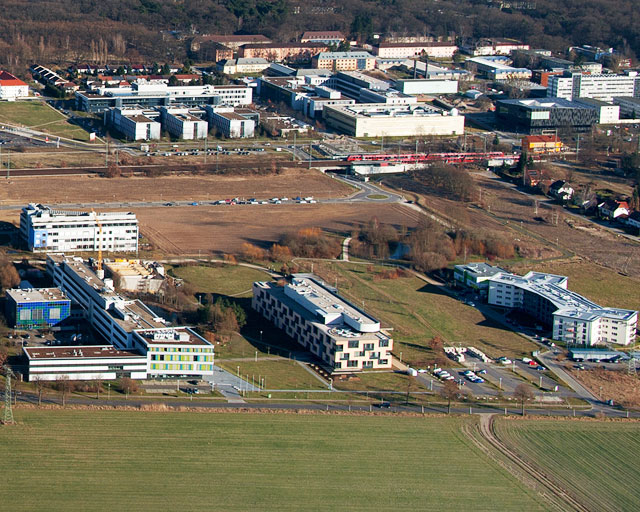New materials with integrated functions
The president of the University of Potsdam Prof. Oliver Günther and the Director of the Fraunhofer Institute for Applied Polymer Research IAP Prof. Alexander Böker have reached an agreement on closer scientific cooperation between their institutions. The focus is on the integration of biological and physical-chemical functions in various materials. This approach has significant potential to increase the productivity and efficiency of industrial processes. In addition to the Fraunhofer IAP and the Chemistry, Physics and Biology faculties at the University of Potsdam, the Fraunhofer Institute for Cell Therapy and Immunology IZI at the Potsdam-Golm site will also be involved in the cooperation.

"Sustainability and efficiency are the key requirements of global trends. In general, this will demand both new materials and more effective manufacturing processes", Prof. Alexander Böker says. He has been the Director of the Fraunhofer IAP since February 2015. He also holds a professorship for polymer materials and polymer technology at the University of Potsdam. Now the plan is to significantly expand on the scientific collaboration between the Fraunhofer IAP and the University of Potsdam. The Golm site of the Fraunhofer IZI will also be closely involved in the cooperation. The focus of the research work is on the efficient integration of biological and physical-chemical material functions into innovative products. The goal is to skillfully integrate functional materials, for example for lighting, sensor or power generation functions, into structural materials such as housings or body components in order to create innovative products. A further goal is to produce a corresponding product in the fewest possible manufacturing steps.
Both the development of new materials, e.g. inexpensive carbon fiber parts, alternative reinforcing fibers such as basalt fibers, fiber-reinforced plastics for lightweight construction, chemically recyclable duromer products or bio-based plastics, as well as highly specialized functional materials, among other things for biological analysis, medical technology, sensors, actuators, LEDs, optics and photovoltaics, are currently being advanced. In this regard, organic (polymer) materials are becoming increasingly important in all fields. The development of new products such as the lab-on-a-chip, the Taschentuchlabor (pocket laboratory), implants, self-healing materials, function-integrated plastic parts for the aviation and automotive industries or function-integrated chip cards for the security industry, require not only the use of new materials but also effective manufacturing processes for them, e.g. in the intelligent combination of functional and structural materials or of biological, organic and metallic materials to produce hybrid materials. Among other things, surfaces and surface modifications as well as new function-integrating production processes with the smallest possible number of production steps play a prominent role.
The Golm partners are hoping to bring the existing competencies in the individual material development disciplines and manufacturing technologies together and elevate them to a new level of quality. "The competency of the Fraunhofer IZI-BB in bio-analysis and bio-processing opens up many possibilities for even more intensive cooperation", Prof. Buller, Director of the Fraunhofer IZI, tells us. University President Prof. Günther explains: "Many links exist between aspects our university focuses on in this subject matter field. Our research-intensive Faculty of Mathematics and Natural Sciences, which has just received funding for three research training groups from the DFG, can benefit directly from this sort of cooperation – a true win-win situation."
Last modified: